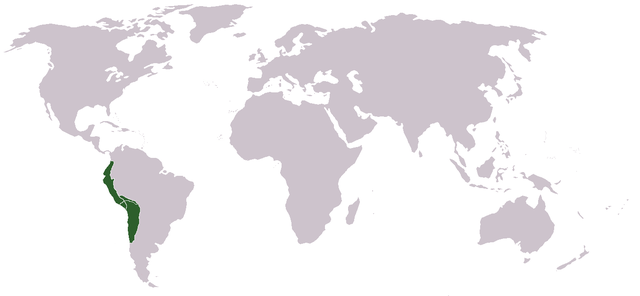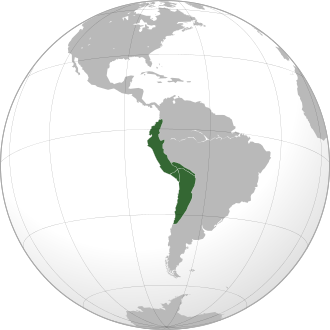Inca Empire
1438–1533 empire in South America From Wikipedia, the free encyclopedia
Remove ads
The Inca were a pre-Columbian country and empire in the Andes of South America. The word 'Inca' can also mean the emperor or king of the Inca people. The Inca Empire was called Tawantinsuyo in Quechua, which means "four regions".


It was the largest empire in the Americas, and was large even by world standards. It existed shortly before Christopher Columbus arrived in the Americas. It lasted for 100 years, until it was conquered by Spanish soldiers in 1532 AD.
Remove ads
Overview
The Inca were ruled by an Emperor known as the Sapa Inca. Their main language was Quechua, but since there were many different groups in the Empire, there were probably many different languages as well.
The Empire was supported by an economy based on the collective ownership of the land.
Location
The Inca ruled along the western coast of South America for a little over 100 years, until the Spanish invasion in the 16th century.
The empire was centered around the city of Cuzco, or Qosqo, in what is now southern Peru. This was the administrative, political and military center of the empire. In later years, it became centered around Quito.
History
Growth
The Inca Empire began around Lake Titicaca in about 1197. From 1438 to 1533, the Incas used conquest and non-violent assimilation to gain a large portion of western South America. Their empire centered on the Andean mountain ranges. It included large parts of what is now Ecuador, Peru, Bolivia, Argentina and Chile.
Road network
Throughout their empire, they built a network of roads and rope bridges to make travel between their communities easy.
Beginning of Spanish rule
In 1533, Atahualpa, the last sovereign emperor, was executed by the conquistador Francisco Pizarro. That marked the beginning of Spanish rule in South America.
Also see
References
Bibliography
Other websites
Wikiwand - on
Seamless Wikipedia browsing. On steroids.
Remove ads


